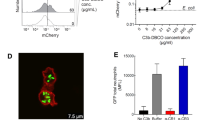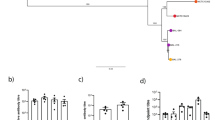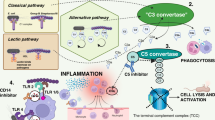Abstract
Summary: In conjunction with 400 ng/ml murine monoclonal antibody of the IgM class, cord neutrophils were able to kill K1-positive Escherichia coli in an in vitro opsonophagocytic assay. Neither adult nor cord neutrophils mediated bacterial killing in the absence of this monoclonal antibody. This bactericidal capacity was observed with eight of 11 (73%) but not all cord neutrophil samples, and under conditions of bacteria to neutrophil ratios as high as 15:1. Increasing the monoclonal antibody concentration up to 12 μg/ml paradoxically resulted in significantly lower amounts of bacterial killing. All 11 cord serum samples had sufficient complement activity to permit this monoclonal antibody to function; however, neonatal cerebrospinal fluid was not an effective complement source. We conclude that this monoclonal antibody may be a useful adjunct to conventional therapy of invasive disease caused by K1-positive E. coli; but it would have to work at the bacteremic phase of infection.
Similar content being viewed by others
Log in or create a free account to read this content
Gain free access to this article, as well as selected content from this journal and more on nature.com
or
Author information
Authors and Affiliations
Rights and permissions
About this article
Cite this article
Cross, A., Wooldridge, W. & Zollinger, W. Monoclonal Antibody 2–2-B Kills K1-positive Escherichia coli in Conjunction with Cord Blood Neutrophils and Sera, but Not with Spinal Fluid. Pediatr Res 18, 770–772 (1984). https://doi.org/10.1203/00006450-198408000-00021
Issue date:
DOI: https://doi.org/10.1203/00006450-198408000-00021



